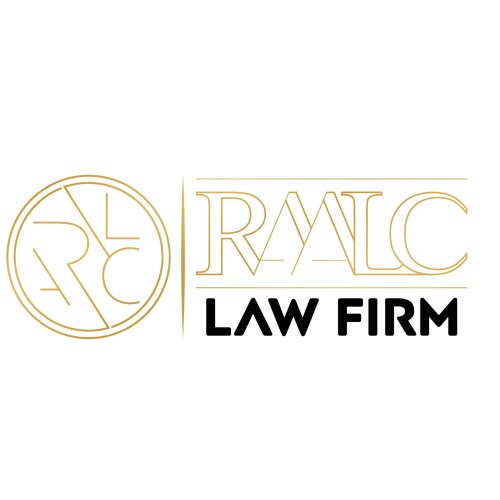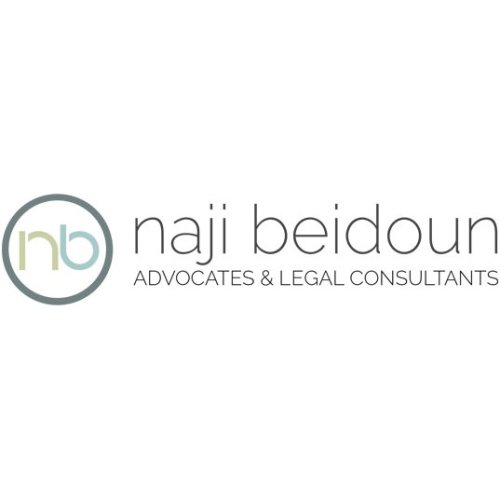Best Equity Capital Markets Lawyers in United Arab Emirates
Share your needs with us, get contacted by law firms.
Free. Takes 2 min.
Or refine your search by selecting a city:
List of the best lawyers in United Arab Emirates
About Equity Capital Markets Law in United Arab Emirates
Equity Capital Markets (ECM) in the United Arab Emirates play a vital role in supporting corporate growth and investment opportunities. ECM refers to the segment of financial markets where companies can raise capital by issuing shares or other equity instruments to public or private investors. The UAE offers a dynamic environment for equity fundraising, particularly in its rapidly growing financial hubs such as Dubai and Abu Dhabi. Both local and international companies often seek to list their shares on UAE stock exchanges, like the Dubai Financial Market (DFM) and Abu Dhabi Securities Exchange (ADX), or raise private capital with the support of strategic investors. The legal framework governing ECM is robust and designed to balance investor protection with the facilitation of business activities.
Why You May Need a Lawyer
Engaging in the equity capital markets, whether as a corporation, investor, or financial intermediary, involves complex legal processes and regulatory requirements. You may require a lawyer for the following reasons:
- Structuring and executing Initial Public Offerings (IPOs) or Secondary Public Offerings (SPOs)
- Navigating the regulatory approval process with local authorities and securities regulators
- Drafting and reviewing offering documents and prospectuses
- Conducting due diligence for issuers or underwriters
- Negotiating with strategic or institutional investors
- Ensuring compliance with disclosure and ongoing reporting obligations
- Facilitating private placements and pre-IPO funding rounds
- Advising on cross-border considerations and foreign ownership rules
- Addressing disputes arising from ECM transactions
Given the high stakes and regulatory intricacies, experienced legal advice is essential to protect your interests and comply with UAE laws.
Local Laws Overview
The UAE's equity capital markets are governed by a combination of federal laws, regulations specific to the Emirates, and rules set by financial free zones. Some of the most relevant legal aspects include:
- Securities and Commodities Authority (SCA) Regulations - The SCA oversees the licensing, regulation, and supervision of equity offerings. Its regulations cover public offerings, private placements, and continuous disclosure.
- UAE Commercial Companies Law - This law contains provisions on share issuance, shareholder rights, and corporate governance which are directly relevant to equity offerings.
- Exchange Rules - DFM, ADX, and NASDAQ Dubai each have their own listing rules, disclosure standards, and operational requirements.
- Foreign Ownership Restrictions - While recent reforms have relaxed some restrictions, there are still limitations on foreign participation in certain sectors.
- Financial Free Zones - Dubai International Financial Centre (DIFC) and Abu Dhabi Global Market (ADGM) operate under separate legal systems based on international standards, providing alternative listing and fundraising venues.
- Anti-Money Laundering (AML) and Know-Your-Customer (KYC) Obligations - These requirements are strictly enforced for all capital market participants.
These regulations aim to foster a transparent, efficient, and attractive investment climate while safeguarding the interests of both issuers and investors.
Frequently Asked Questions
What is an Initial Public Offering (IPO) in the UAE?
An IPO is the process where a privately held company offers its shares to the public for the first time through a stock exchange, enabling it to raise capital from a wider pool of investors.
Who regulates equity offerings in the UAE?
The Securities and Commodities Authority (SCA) is the main regulatory body for equity capital markets, alongside the individual stock exchanges. In financial free zones like DIFC and ADGM, separate regulators may apply.
What are the minimum requirements for a company to list on a UAE stock exchange?
Requirements vary by exchange but generally include a minimum profit track record, adequate share capital, a public float threshold, and demonstrable corporate governance standards.
Are there restrictions on foreign investors participating in UAE ECM?
Many sectors now permit full foreign ownership, but certain strategic industries still have limits on foreign equity holdings. Each exchange and industry may have specific rules and caps.
What documents are typically required for an equity offering?
Core documents include a prospectus or offering memorandum, due diligence reports, legal opinions, and ongoing disclosure statements as required by law and regulator rules.
How long does the IPO process take in the UAE?
The process can take several months, including preparatory work, regulatory filings, SCA review, marketing, and public subscription. The timeline depends on the complexity and readiness of the company.
Can private companies raise funds through ECM without going public?
Yes, private placements and pre-IPO fundraisings are common and subject to bespoke regulatory requirements, particularly regarding qualified investor participation and disclosure.
What are the key risks for investors in ECM transactions?
Risks include market volatility, inadequate information disclosure, regulatory changes, and in some cases, company-specific risks such as financial underperformance or governance failures.
Are there ongoing obligations after listing?
Listed companies must comply with continuous disclosure rules, regular financial reporting, corporate governance obligations, and adhere to SCA and exchange requirements.
How can legal disputes in ECM be resolved?
Disputes may be resolved through local courts, arbitration, or special courts in financial free zones, depending on the venue and the terms of the contract.
Additional Resources
- Securities and Commodities Authority (SCA) - The governing body for securities regulation in the UAE.
- Dubai Financial Market (DFM) and Abu Dhabi Securities Exchange (ADX) - The main stock exchanges for equity listing and trading.
- Dubai International Financial Centre (DIFC) and Abu Dhabi Global Market (ADGM) - Financial free zones with their own ECM frameworks.
- Ministry of Economy - Provides information and support relating to company formation, ownership, and investment policies.
- Chartered Financial Analysts (CFA) Society Emirates - Offers educational resources for investors and professionals.
- Legal consultancies and law firms with ECM expertise.
Next Steps
If you are considering raising capital, investing, or participating in ECM transactions in the UAE, here are steps you should consider:
- Assess your objectives and determine the appropriate ECM route, such as IPO, private placement, or strategic investment.
- Contact a reputable law firm or a legal advisor with experience in UAE capital markets to analyze your eligibility and requirements.
- Discuss the necessary documentation, timelines, and compliance obligations with your legal advisor.
- Engage with regulatory authorities early to understand any specific approvals or processes that may apply to your situation.
- If you are an investor, seek independent legal and financial advice to evaluate the risks and benefits of potential transactions.
- Stay informed of any changes to laws or regulations that may impact ECM activities in the UAE.
Proper legal guidance is essential to ensure your ECM activity is compliant, efficient, and aligned with your strategic goals. Engaging early with qualified legal experts can significantly reduce risk and enhance opportunities in the UAE's dynamic equity capital markets.
Lawzana helps you find the best lawyers and law firms in United Arab Emirates through a curated and pre-screened list of qualified legal professionals. Our platform offers rankings and detailed profiles of attorneys and law firms, allowing you to compare based on practice areas, including Equity Capital Markets, experience, and client feedback.
Each profile includes a description of the firm's areas of practice, client reviews, team members and partners, year of establishment, spoken languages, office locations, contact information, social media presence, and any published articles or resources. Most firms on our platform speak English and are experienced in both local and international legal matters.
Get a quote from top-rated law firms in United Arab Emirates — quickly, securely, and without unnecessary hassle.
Disclaimer:
The information provided on this page is for general informational purposes only and does not constitute legal advice. While we strive to ensure the accuracy and relevance of the content, legal information may change over time, and interpretations of the law can vary. You should always consult with a qualified legal professional for advice specific to your situation.
We disclaim all liability for actions taken or not taken based on the content of this page. If you believe any information is incorrect or outdated, please contact us, and we will review and update it where appropriate.
Browse equity capital markets law firms by city in United Arab Emirates
Refine your search by selecting a city.

















